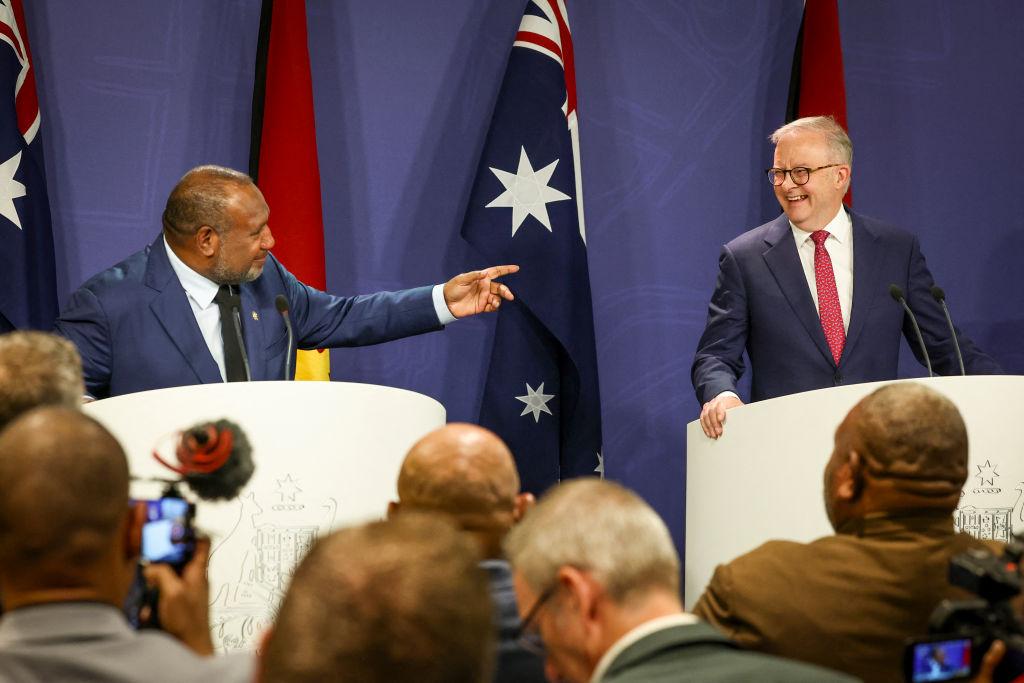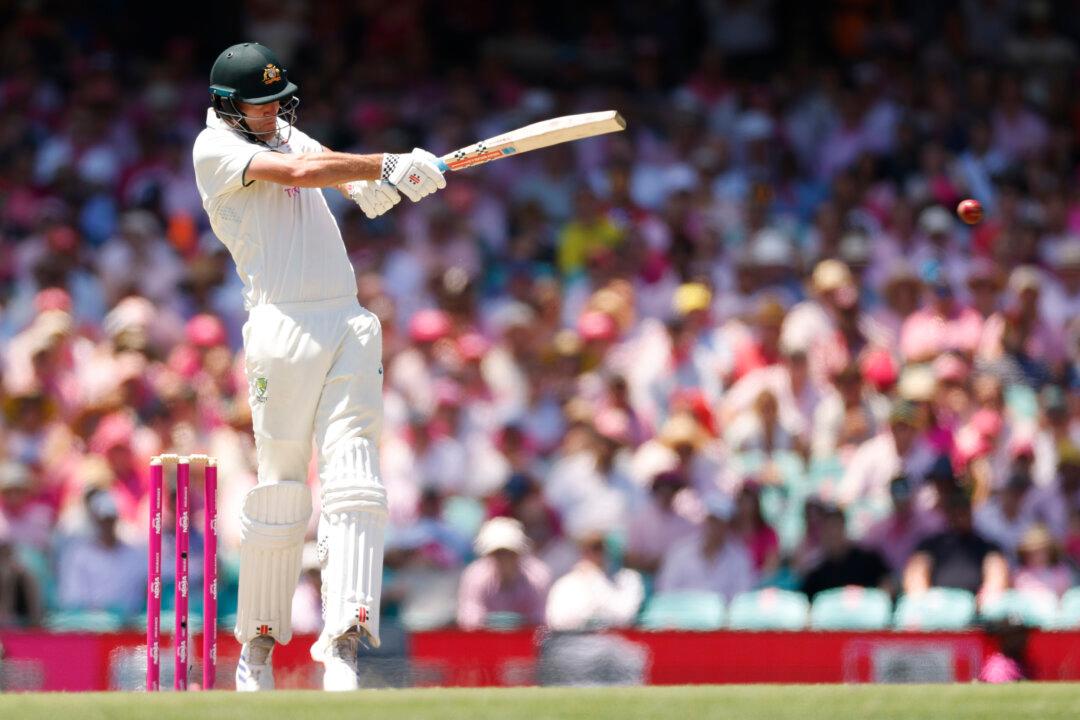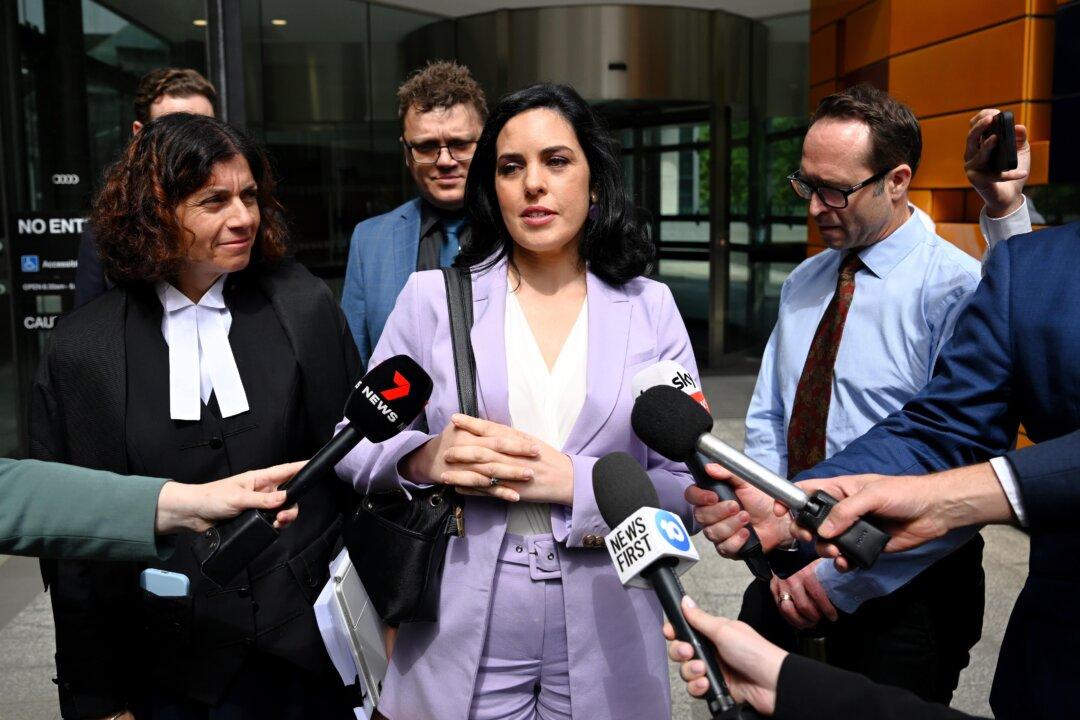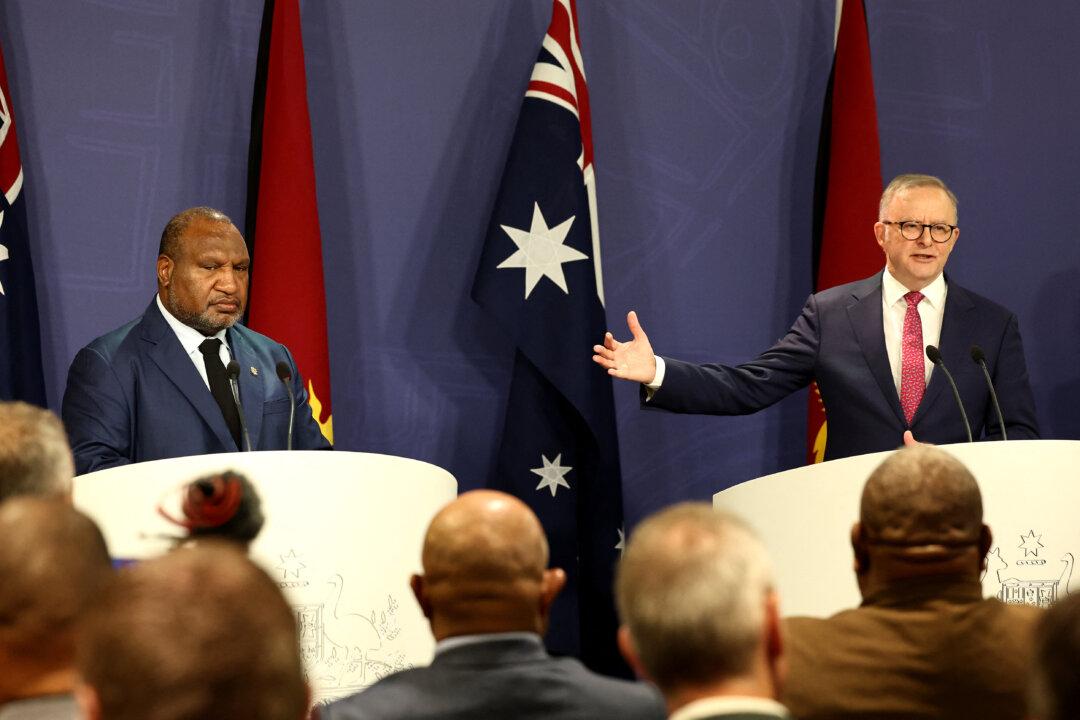Australian Opposition Leader Anthony Albanese has taken aim at the prime minister’s handling of Australia’s relations with China, claiming it is politically motivated and has put the country’s resources industry at risk.
Albanese delivered the remarks at the launch of Minerals Week—hosted by the Mineral Council of Australia—while outlining the Australian Labor Party’s (ALP) vision for the $200 billion sector, including support for a gradual transition towards renewable energies.
The opposition leader said the federal government was undermining the industry with its handling of relations with Beijing.
“(Prime Minister) Scott Morrison has no long-term strategy to deal with a changing China that is pressing its interests more assertively, while finding areas of potential cooperation, including on trade, that are in both our countries’ interests,” he said.

Australian Prime Minister Scott Morrison (L) and Chinese Communist Party leader Xi Jinping (R). (Paul Kane, Jason Lee-Pool/Getty Images
“Mr Morrison is making the grave error of prioritising his domestic political interests over Australia’s national interests,” he added. “Australian needs more strategy and less politics when it comes to managing our differences with China.”
“My concern is that not only does he not fully comprehend Australia’s interests in relation to China, he doesn’t even seek to. As with everything else he does, he only seeks to understand his political opportunity,” she said.
Australia has been on the receiving end of a year-long economic coercion campaign from Beijing in retaliation for Foreign Minister Marise Payne calls for an independent investigation into the origins of SARS-CoV-2, the disease that causes COVID-19.

“Recent comments from Peter Dutton and a senior official about the prospect of war might well inflame nationalistic sentiments and secure a grab the six o’clock news,” Albanese said.
“But foreign policy is not a game. It’s not a photo-op. It’s a serious business with profound security and economic implications.”
Liberal Senator James Paterson said it was risky to promote a different foreign policy from the federal government.
He added that the ALP leader might be looking for an issue to “unite his party.”
The issue was spotlighted following the recent state byelection result in the coal-mining Upper Hunter electorate that saw the New South Wales ALP lose seven percent of its primary vote compared to the previous election.
“The entire international society is changing. It is reflecting on the past policies toward the CCP,” he told The Epoch Times.





